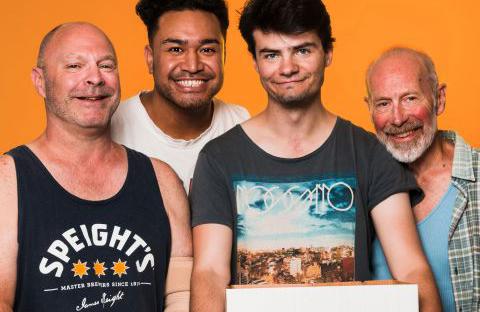Moving on up


When I was doing my Masters in Scriptwriting in 2015, I was also working at a video store. It was called Brooklyn Video – it used to be United Video, but they’d seceded from their mother branch some years before so they’d started to put a new sign up. However, whoever had done it had given up and only partially obscured “United”. This led to my place of work being affectionately dubbed “Ted Video” by my partner and I.
I love small businesses. I’ve worked at a couple now and I think they’re such a breath of fresh air from working in a larger corporate office. The rules are different, everything’s a bit more ad hoc, and you can see the gaffer tape and the number 8 wire a little bit more, which is in turns charming and horrifying, depending on what’s being held together. The thing with these small businesses is that they have a high turnover rate of employees. The ghosts of these employees are just scattered around on the counters – nametags, knick knacks, passwords that were once significant to someone you’ll never meet.
So after working in a small law firm (I’m still not sure how I got that job), a bakery where I saw the owners leave after having been there for twelve years and “Ted Video” which has now shut down, I knew I had to exorcise this experience of ‘passing through’ so many varied workplaces, because there were too many awkward, hilarious and sometimes tragic encounters to go unexpressed.
Movers follows Tai (Sepe Mua’au), a wannabe stand-up comedian who has just finished uni and has no real clue about what to do next. When he takes a job at a moving company to kill time, he meets Oscar (Lloyd Scott) and Bruce (John Landreth), two Pākehā blokes as ‘middle New Zealand’ as can be.
A large part of the engine of Movers is the difference in class between the characters. Tai comes from a middle class background, whereas Bruce and Oscar have been working at the same moving company for eleven years. It’s locked in Tai’s mind early on that this is a student job – he’ll do it for a bit then move onto something a little bit more his speed. Equally to Bruce and Oscar, the business is their life. “We’re Oscar’s Movers,” Bruce says at one point. “Share the weight.” It’s these two mentalities – that Tai will be moving on and they’ll be staying on – that is at the heart of the piece. In jobs, some people are only passing through and some are in it for the long haul.
Of course, this isn’t the only difference between Tai and Bruce and Oscar; Tai’s young and Samoan and Bruce and Oscar are older and white. I wanted to smash all these tensions together in the odd awkward way they can materialize in real life, not in shouting matches and drama but tense awkward interactions with little comments that have an ocean of subtext to them.
“I wanted to smash all these tensions together in the odd awkward way they can materialize in real life, not in shouting matches and drama but tense awkward interactions with little comments that have an ocean of subtext to them”
I hope the experience for audiences won’t be too black and white either. I’m not aiming for this play to be for millennials to snicker at an older generation, or for Tai to be a thinly-drawn Snapchatting, Facebook-obsessed youth. It’s about exploring what happens when people of different backgrounds are thrust together for the majority of the day. I find that exploring how people get along and navigate through their assumptions and biases can be hilarious, heartwarming and well worth writing a play about.